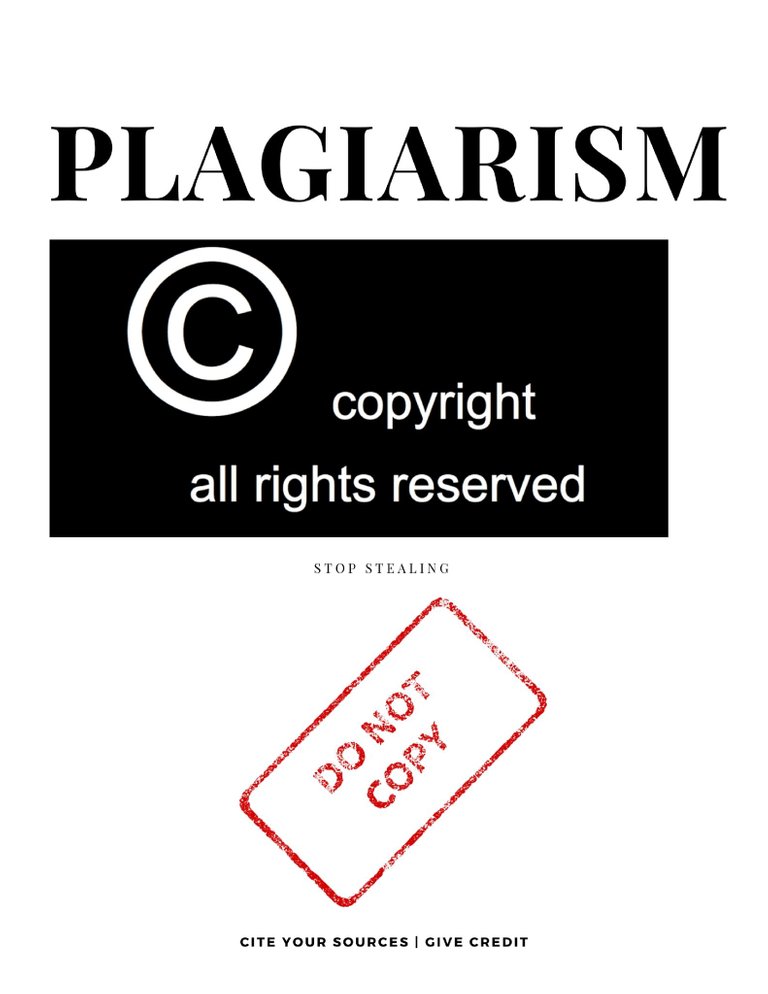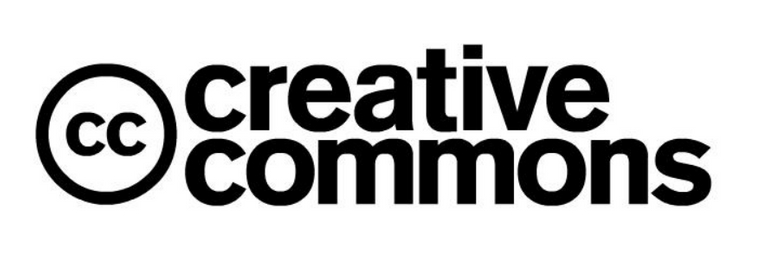[ENG/ESP] Plagiarism vs Muted Content: how to avoid incurring in these practices heavily penalized in #HIVE. / Plagiarismo vs Contenido Muteado: cómo evitar incurrir en estas prácticas penalizadas fuertemente en #HIVE.

A couple of hours ago I just read in this Proof of Brain Community a very precise article referring to Plagiarism of texts in #HIVE.
The post has been published by the user @erikah and abounds in details about certain attitudes, when writing a text in #HIVE, that it is better to avoid if you do not want to run the risk of being penalized with the inclusion in a blacklist.
I am not going to refer to Plagiarism, understood as such, but to another aspect that can strongly penalize our contents, and that I see lately quite often even in users with a fairly high level (at least considered with mine): the Muteo.
Muteo is, sometimes when there is no plagiarism involved, a penalty that the administrators and/or curators of certain communities put into practice when the content published does not conform to the rules of that community. Which may, or may not, have importance in other Communities. To be considered as an infraction in the compliance of the rules. But that, in the Community of reference, it is important and therefore that content is liable to be muted.
And this has to do with a personal experience I had with a Community with which I have an excellent relationship.
We know that there is nothing more unpleasant for those who look at our profile (specifically the Posts tab in Hive.blog for example) than seeing the summary of a publication "darkened" which means "muted "3 .
The pressure rises and we begin to investigate the causes of the mute (which, on the other hand, can be lifted, it is not irreversible). But at first it produces a feeling of anguish and disappointment because we do not know where we have made a mistake.
For that reason it is fundamental before beginning to publish in a Community to read attentively the rules (especially in its HomePage to the right of the page) not only in Discord.
The reason why we all post (speaking in first person when we try to impute responsibilities is always a sign of honesty and good behavior) and/or choose a Community is, apart from our tastes or preferences, the profitability and/or valuation of the posts that Community offers. Let's be honest with ourselves, in principle. I know very few users who post in Communities that have very low post ratings.
As likewise I have seen to include hastags in posts that have nothing to do with the content, simply to try to attract some automated curation gains that do not analyze the content but do a hastag crawl.
Simply put: the Top Ten Communities we see sorted on Hive.blog from first to last don't exactly follow an alphabetical order. If we click on Explore Communities after the last one we have subscribed to we will see them all ordered from highest to lowest. This is called Trending Communities.
Therefore if we choose a Community it is convenient to analyze first the rules of the same, if it has or not some incubation project that cures and supports for example.
Finally I will return to the issue of muting that affected me temporarily in a publication (although after correcting the error it was lifted).
We know that in Wikipedia (through Wikimedia) there are many images that can be published under the Creative Commons license, i.e. citing the source.
In my particular case I had cited the source with a link as it should be done but connecting it to the page of the image, that is the one with an extension of the type .jpg, for example and to clarify the link was directed to a page type: páginadeprueba.jpg instead of being directed to the page on which the image had been published, for example: páginadeprueba.htm.
At the time it was brought to my attention that the #HIVE rules state precisely that the link should be directed to the page on which the image has been posted and not to the image itself.
Not everything is plagiarism sometimes, but there are many mistakes in which it is better not to make to avoid unpleasant surprises.
Let's learn every day a little more about how to publish content on this beautiful platform respecting all the rules and regulations.
Until next time and thanks for reading!

Hace un par de horas cabo de leer en esta Comunidad de Proof of Brain un artículo muy preciso referido al Plagio de textos en #HIVE.
El post ha sido publicado por el usuario @erikah y abunda en detalles sobre ciertas actitudes, al escribir un texto en #HIVE, que es mejor evitar si no se quiere correr el riesgo de ser penalizados con la inclusión en una lista negra.
No me voy a referir al Plagio, entendido como tal, sino a otro aspecto que puede penalizar fuertemente nuestros contenidos, y que veo últimamente bastante seguido incluso en usuarios con un nivel bastante alto (al menos considerado con el mio): el Muteo.
El Muteo es, a veces cuando no hay plagio de por medio, una penalidad que ponen en práctica los administradores y/o curadores de ciertas comunidades cuando el contenido publicado no se ajusta a las reglas de esa Comunidad. Que pueden, o no, tener importancia en otras Comunidades. Ser considerados como una infracción en el cumplimiento de las reglas. Pero que, en la Comunidad de referencia, es importante y por lo tanto ese contenido es pasible de muteo.
Y esto tiene que ver con una experiencia personal que tuve con una Comunidad con la cuál mantengo una excelente relación.
Sabemos que no hay algo más antipático a la vista de quien observa nuestro perfil (concretamentamente la pestaña Posts en Hive.blog por ejemplo) que ver el resumen de una publicación "oscurecido" que significa "muteado".3
Se nos sube la presión y comenzamos a indagar las causas del muteo (que, por otra lado, puede ser levantado, no es irreversible). Pero en principio nos produce una sensación de angustia y desilusión porque no sabemos donde nos hemos equivocado.
Por ese motivo es fundamental antes de comenzar a publicar en una Comunidad leer atentamente las reglas (especialmente en su HomePage a la derecha de la página) no solo en Discord.
El motivo por el cuál todos publicamos (hablar en primera persona cuando tratamos de imputar responsabilidades es siempre señal de honestidad y buena conducta) y/o elegimos una Comunidad es, aparte de nuestros gustos o preferencias, la rentabilidad y/o valoración de los posts que esa Comunidad ofrece. Seamos honestos con nosotros mismos, en principio. Conozco muy pocos usuarios que publican en Comunidades que tienen una valoración de los post muy baja.
Como asimismo he visto incluir en los post hastags que no tienen nada que ver con el contenido, simplemente para tratar de atraer algunas ganancias de curación automatizadas que no analizan el contenido sino que hacen un rastreo de hastags.
Dicho en palabras simples: la Top Ten de las Comunidades que vemos ordenadas en Hive.blog de la primera a la última no siguen un orden alfabético precisamente. Si clicamos en Explorar Comunidades después de la última a la que nos hemos subscripto veremos todas ordenadas de mayor a menor. Es el llamado Trending Communities.
Por lo tanto si elegimos una Comunidad es conveniente analizar primero las reglas de la misma, si tiene o no algún proyecto de incubación que cura y soporta por ejemplo.
Para finalizar voy a volver al tema de muteo que me afectó en forma provisoria en una publicación (aunque después de corregir el error fue levantado).
Sabemos que en Wikipedia (a través de Wikimedia) hay muchas imágenes que se pueden publicar bajo la licencia Creative Commons, es decir citando la fuente.
En mi caso particular había citado la fuente con un enlace como debe hacerse pero conectandolo con la página de la imagen, es decir la que tiene una extensión del tipo .jpg, por ejemplo y para clarificar el enlace estaba dirigido a una página tipo: páginadeprueba.jpg en vez de estar dirigido a la página en la cual había sido publicada la imagen, por ejemplo: páginadeprueba.htm
En ese momento se me hizo notar que las normas de #HIVE establecen con precisión que el enlace debe ser dirigido a la página en que ha sido publicada la imagen y no hacia la imagen misma.
No todo es plagio a veces, pero hay muchos errores en los cuales en mejor no incurrir para evitar desagradables sorpresas.
Aprendamos todos los días un poco más sobre como publicar contenidos en esta hermosa plataforma respetando todas las reglas y normas.
Hasta la próxima y gracias por leer!


Electronic-terrorism, voice to skull and neuro monitoring on Hive and Steem. You can ignore this, but your going to wish you didnt soon. This is happening whether you believe it or not. https://ecency.com/fyrstikken/@fairandbalanced/i-am-the-only-motherfucker-on-the-internet-pointing-to-a-direct-source-for-voice-to-skull-electronic-terrorism
https://twitter.com/HugoRep/status/1431664555055329283
The rewards earned on this comment will go directly to the person sharing the post on Twitter as long as they are registered with @poshtoken. Sign up at https://hiveposh.com.
Thank you for supporting my content and for the tokens received. Greetings and a very good weekend to the whole team.